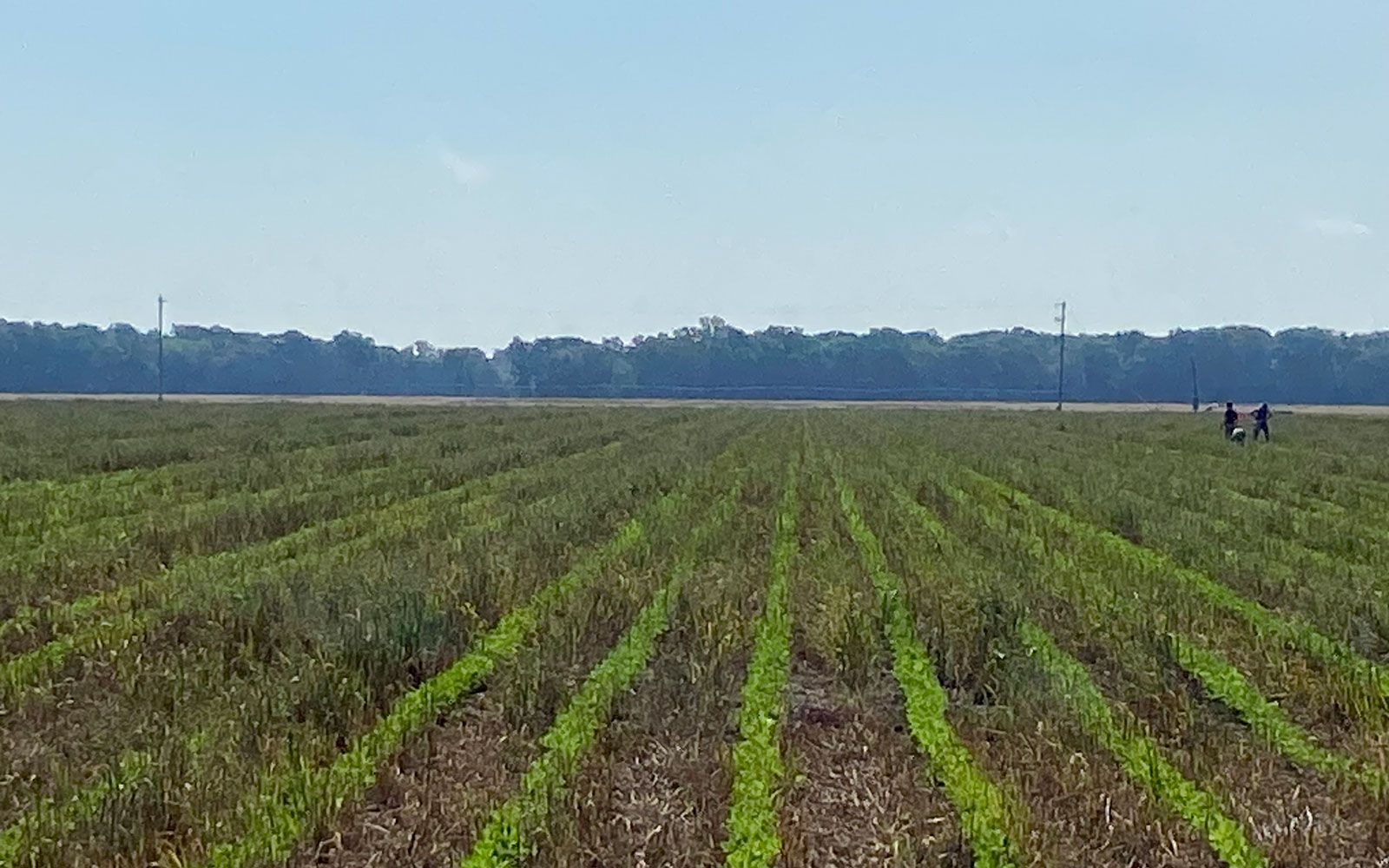News
Saving Mississippi's Water, One Field at a Time

If Jason Hampshire isn't in his office at Mississippi State University's Water Resources Research Institute, he's probably at his other office—a Mississippi crop field.
Along with his institute colleagues, Hampshire conducts small-plot research projects at the Mississippi Agricultural and Forestry Experiment Station's Black Belt Branch Station in Brooksville; and farm-scale projects in the Mississippi Delta.
"We understand what farmers are doing because we're doing it, too," said Hampshire, a graduate research assistant working on a doctorate in agronomy. "We manage research projects from start to finish, meaning we till our own fields, plant seeds, manage pest and weed control, irrigate, harvest and prepare for the next season. That's how we build trust with farmers—by demonstrating that we know how to be responsible stewards of their fields."
A native of Ohio, he received a business degree from Xavier University in Cincinnati, a bachelor's degree in geoscience with an emphasis in hydrology, and a Master of Public Administration from Boise State University.
His background dovetails with the institute's focus on solving water and water-related land use problems, specifically the impact of agriculture.
"A lot of agrochemicals and agronutrients, like nitrogen and phosphorus, end up in the Mississippi River basin, along with sediment from farming operations," Hampshire said. "My research addresses how growers can help slow down or prevent these pollutants from entering our water systems."
Hampshire's research addresses conservation management strategies for two basic farming practices: soil tillage and irrigation.
Farmers typically till fields multiple times a year, which disturbs the soil and accelerates erosion and runoff. In combination with reduced tillage, Hampshire is studying the effects of planting cover crops on post-harvest fields to improve soil health, reduce erosion and runoff, and mitigate nutrient transport.
For his irrigation research, Hampshire is testing the use of soil moisture sensors in crop fields. By gathering data from sensors placed at multiple soil depths, farmers can gain accurate, real-time insights into irrigation needs and optimize the timing and delivery of water.
"Farmers can expect favorable economic returns because they're not pumping so much water, which, in turn, helps reduce runoff," Hampshire said.
Economic returns are an important consideration in agricultural research. Most growers operate on thin profit margins, and there's a price tag associated with investing in new programs and technologies.
Hampshire pointed out that one of the institute's strengths is the diversity of knowledge researchers bring to the table to help farming businesses succeed and to protect the nation's water resources.
"Everyone has a specific expertise, but we're also generalists," he said. "We come from different walks of life and experiences, and when we get together to address issues, we're able to integrate ideas across multiple disciplines and solve problems quickly. We want to help each other out, and that's good news for farmers and for the environment."
The Water Resources Research Institute at Mississippi State University is a leader in addressing critical water and land use challenges. Collaborating with leading water resources officials, the institute develops innovative research solutions that benefit Mississippi, the region and the nation. Learn more about the institute at www.wrri.msstate.edu.
View More News